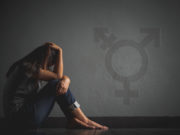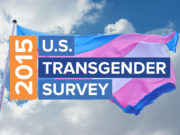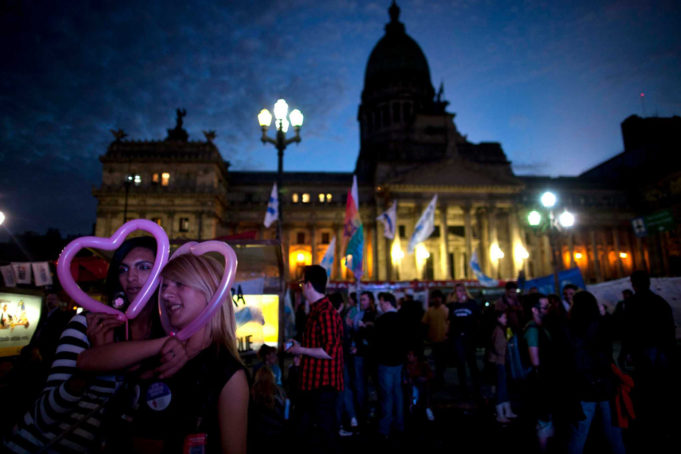The Good
On May 9, 2012, one of the most advanced laws on gender identity was passed in Argentina. A triumphal brainchild of several LGBT+ organizations, it recognizes the right of every individual to express their self-perceived identity in any way they see fit while also granting free access to hormone therapy and surgeries. It defines gender as an internal experience, which may or may not agree with the one you were assigned at birth. If you are 18+, it establishes that the only requirement to change your name and gender marker on both your ID and birth certificate is expressing your wish to do so. Minors are also contemplated, although they need to have their parents’ consent or a legal advisor.
No medical, psychiatric diagnoses or surgeries to render your body binary and barren are required. No one has access to your original birth certificate unless it is through a court order and in a case of extreme need, which has never happened so far. If you choose to go stealth, confidentiality is granted.
Educational, health institutions and workplaces are compelled to respect all identities and chosen names, even when the person has not undergone any kind of medical procedure or legally changed their gender marker. Both public and private medicine programs are expected to provide full treatment options for trans people, including every surgical procedure and HRT with no cost. The only requirement being the patient’s consent. Less than a year later, a resolution made it extensive to foreigners with permanent residence in the country.
“More and more, people are becoming allies, sympathizing with those who were once seen as an object of scorn or an easy joke.”
This law was a welcome turn in the lives of thousands of transgender people. More than 10,000 people have received their new ID’s in the four years that followed. Trans issues were catapulted to the spotlight and representation in the media has been on the increase ever since. More and more, people are becoming allies and are sympathizing with those who were once seen as an object of scorn or an easy joke. LGBT+ organizations have deemed this only the beginning and keep fighting for more inclusive legislation that promotes access to work and equal opportunities for everyone under the trans* umbrella. The younger generations appear to be far more accepting of diversity and efforts are being made to train teachers and physicians in order to ensure the right to safe education and health. Diversity-inclusive bars and parties have been spreading like wildfire and are even popular among straight cisgender folks as well.
In Buenos Aires, things seem to be looking up for trans people. But is the picture as bright as it’s painted?

The Bad
Reality does not always match what has been set in the law books. In the case of the Gender Identity Law, actual access to health remains elusive. Always short on budget and with a frail infrastructure, only a handful of hospitals in the capital city provide specific care, HRT or surgical options. The most prominent of them, Hospital General de Agudos “Carlos G. Durand”, which has been historically in charge of gender reassignment procedures, still fails to acknowledge the law and requires a series of interviews with their head psychiatrist as part of their protocol. Others ask patients to pay part of the costs of the operations privately. In the few cases that grant the free surgeries stipulated, the waiting lists are endless. Private health care providers have not run out of excuses not to fulfill their legal responsibilities yet. Due to improper training and lack of experience, the outcomes of many surgeries are far from those expected. Cases of severe depression and even suicide after such failed procedures are not uncommon.
“LGBT+ inclusive health departments in hospitals are facing imminent closing and police forces keep harassing transgender sex workers with a renewed intensity.”
The changing winds in politics and the return of the right wing in the form of current President Mauricio Macri have not been favorable to vulnerable minorities and trans* people haven’t been an exception. LGBT+ inclusive health departments in hospitals are facing imminent closing and police forces keep harassing transgender sex workers with a renewed intensity. The Bishop of La Plata, in representation of the most conservative sectors of the Catholic Church, has recently asked the President to abolish the Gender Identity Law. And although acceptance has definitely grown, especially in the capital city, millions of Argentinians are still repelled by anything that strays from their obsolete conception of men and women.

The Ugly
Violence against trans people is far from ceasing. More than five trans women were killed in the first half of this year. Sex work remains the only alternative for many trans women, leaving them vulnerable to hate attacks. In the last two years, hate crimes related to gender and sexual orientation have flared up alarmingly.
“Justice has not been served.”
Last week was the first anniversary of the murder of Amancay Diana Sacayán, a trans woman and LGBT+ activist who fought tirelessly for the rights of trans people. She dared to face the police, reporting the violence she had received at their hands. Her murderers have not been caught. Justice has not been served.
Crime against transgender individuals is often characterized for its inhuman violence. Brutal beatings, multiple stabs, torture. The horror is so great that it hurts to put it into words. We are being ravaged and killed, even in a country that defends our right to live and flourish. And yet we can’t stop to grieve for our fallen, nor give in to the pain of our losses. Never giving up, never surrendering, we have to keep the fight alive in their memory, for a future that holds nothing but peace and justice.
































